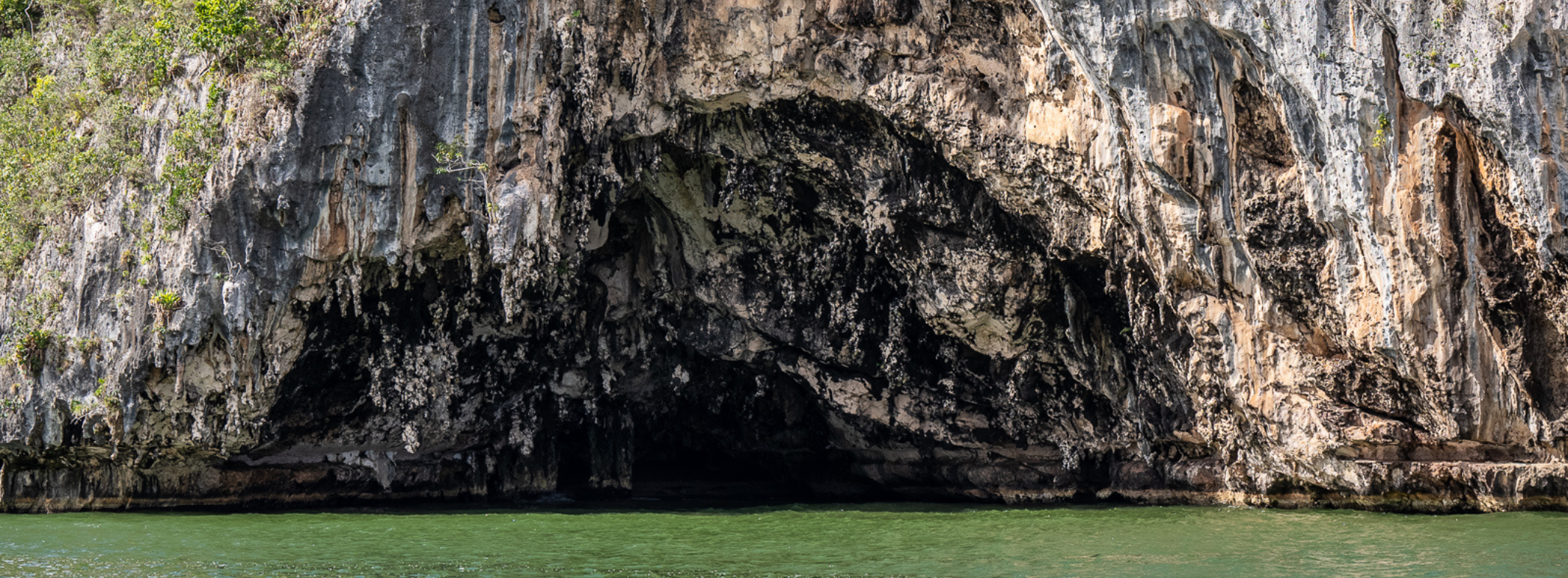
Location
San Juan, Puerto Rico
Program Description
This immersive field-based course explores elements of exemplary geology and the rich marine and terrestrial ecology of the Caribbean, with a primary focus on the archipelago of Puerto Rico. Students will investigate the region’s unique karst landscapes, vibrant marine ecosystems, and diverse forest biomes.
More than 50% of the Caribbean is underlain by karst surface geology formed on carbonate rocks dating from the Holocene to the Jurassic, and in Puerto Rico, Oligocene and Miocene limestones offer a window into the geological evolution of the region, revealing insights into tectonic activity, sea level changes, and the development of world-class examples of karst features such as sinkholes, caves, and underground rivers.
This program offers geology and biology students an unforgettable opportunity to explore Puerto Rico’s dynamic natural systems through immersive, hands-on fieldwork. One of the main features is studying firsthand PR local natural history alongside local scientists and experts. In addition, participants will stay in beachside accommodations in Arecibo and San Juan, gaining direct exposure to Puerto Rican culture.
In the weeks leading up to the trip, students will meet once a week to explore foundational concepts and prepare for fieldwork. These sessions will introduce key topics such as karst geology, marine ecology, tropical forest ecosystems, and the cultural and archaeological history of Puerto Rico, among other topics Students will also gain familiarity with field methods, research tools, and the broader environmental and societal context of the sites they will visit. The highlight of the course is a week-long field experience in Puerto Rico during spring break, where students will apply their classroom learning in real-world settings - through daily excursions to ecologically and geologically significant location
Location Description
This course is based in the ecologically and culturally rich archipelago of Puerto Rico. Locations serve as dynamic outdoor classrooms where students can explore the island’s diverse natural and cultural landscapes. In some sites, students will engage with local experts—including geologists, ecologists, archaeologists, and cultural historians—to explore the archaeological significance, contemporary cultural relevance, and geological or geographical uniqueness of the area.
Ecologically, Puerto Rico is a biodiversity hotspot, home to El Yunque National Forest—the only tropical rainforest in the U.S. National Forest System—which supports a wide range of endemic species and plays a vital role in regional hydrology and climate regulation.
Director
Angel Garcia Jr. | garci4aa@jmu.edu | Geology and Environmental Science
Kelsey Reider | reiderke@jmu.edu | Biology
Accommodations
Students will be housed in furnished, apartment-style accommodations, located in the beachside town of Arecibo, Puerto Rico. Each apartment includes multiple bedrooms, with two students sharing a room that features a private bathroom. The units are equipped with air conditioning, internet access, and some of them with a full kitchen, offering a comfortable and convenient living space during the field portion of the course.
During the week, breakfast will be catered to the accommodations each morning. For lunch, students will be provided with supplies to pack their own meals, such as sandwiches, fruits, protein bars, juice, and water—ideal for taking along on daily expeditions. Dinners will be enjoyed at local cafeterias in town, giving students the opportunity to experience Puerto Rican cuisine and community life.
Additional Items to Consider
Students should be prepared to engage in outdoor fieldwork that may involve getting wet, muddy, and in some cases navigating through confined spaces. Light to moderate physical activity—such as hiking over uneven terrain—will be required to access some field sites. A float test will be required for participation in water activities. Participation in the activities is optional.
Since Puerto Rico is a U.S. territory, U.S. citizens do not need a passport or travel visa to participate in this program. A valid REAL ID-compliant form of identification is required.
The official currency is the U.S. dollar (USD), and the majority U.S. cellphone plans work in Puerto Rico without roaming charges.
Puerto Rico’s more spoke languages are Spanish and English. While English is widely spoken, basic Spanish skills are encouraged to enhance communication and cultural immersion but not needed. The program director is Puerto Rican and will help guide students through both the scientific and cultural aspects of the experience.
Applicant Criteria
Applicants must have a GPA minimum of 2.0.
Open to sophomore, junior, and senior biology, geology majors, and biology graduate students.
Program Prerequisites: GEOL 110, GEOL 211, or a 200-level GEOL or BIO course; at least four hours of additional lab science, at least sophomore status, and permission of the instructor.
This course meets Wednesday's afternoons prior to program departure. You will need to be enrolled in GEOL 400 or BIO 400 or BIO 500.
Application Process
This list serves as an application preview. To apply, students will need to complete the following:
- Study Abroad Online Application ($40 fee)
- Short Essay
Further details and instructions about these application requirements will be available upon log-in.
Application Deadline
Dates
All dates are tentative and subject to change
Courses
GEOL 400: Geology and Ecology of the Bahamas (3 credits)
BIO 400: Geology and Ecology of the Bahamas (3 credits)
BIO 500: Geology and Ecology of the Bahamas (3 credits)
Courses listed here are to be used as a general guideline for program curriculum. *All courses are considered pending until approved by the Academic Department, Program, and/or College.
